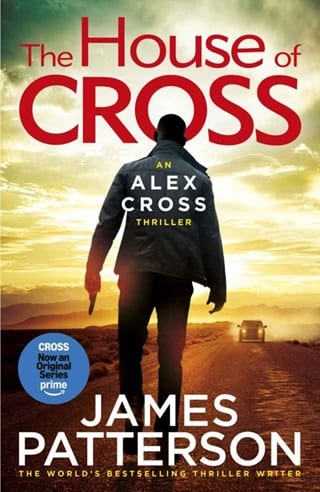CHAPTER 34
WE REACHED THE TONY offices of the Trafalgar Group around ten that morning, presented our credentials, and asked to see Geneva Roche.
Roche, a sharp and well-put-together brunette in her forties, came right out to greet us. “I had a feeling I’d be hearing from someone in your organization,” she said. She led us into her huge office and shut the door.
Mahoney got right to it. “We were told the late Judge Franklin was on a short list of possible Supreme Court candidates.”
Roche made a sour face. “I would not call it a short list.”
I said, “What would you call it?”
“An endlessly revised long list. It changes daily at this point and will throughout the administration.” Roche explained that she had worked in the White House two presidents ago, and lists of possible candidates for various appointments were constantly evolving and being updated.
Mahoney said, “Was Judge Bitgaram Pak of the Ninth Circuit ever on that constantly evolving list?”
Roche raised an eyebrow. “Yes. The president-elect knew Pak. She had him put on the list right after she clinched the nomination so we could dig in quickly.”
“And?”
“An investigation was ongoing, but he was high on the list. Top five.”
I realized she did not know about the unconventional sex life and the gambling but said nothing. “How high on the list was Judge Franklin?”
“Top five.”
Mahoney said, “You don’t find it odd that two people on that list have recently been murdered?”
Roche swallowed. “Two, I found a little odd. Given where Judge Pak lived, you could see it happening. Not Judge Franklin, though. And certainly not Nathan Carver. So three—I find that very odd.”
We both shot forward.
Ned said, “What do you mean, three?”
I said, “And who’s Nathan Carver?”
She looked at us incredulously. “Professor of constitutional law at the University of Georgia. He was shot outside his house last night. I thought you knew.”
“We do now,” I said, reeling as I considered the implications. “And Professor Carver was on this list of recommended candidates?”
“Our number one, as a matter of fact.”
“We need the list and we need to know the groups that have access to it,” Mahoney said.
Roche thought a moment, then named the president-elect’s office, the vice president–elect’s office, the incoming attorney general’s staff, and the advisory panel itself.
“But these lists do float around a fair bit. Names are mentioned, debated. The group gets feedback and then vets the information. The order of preference changes. Like I said, at this point, it’s all fluid.”
“Whatever,” Mahoney said. “I need the names of everyone on that advisory panel.”
Roche shifted uncomfortably. “These are the kinds of people who prefer to stay in the background. And I know them. They would not be involved in—”
“Look, we’d let them stay in the background if three potential nominees to the Supreme Court hadn’t been murdered. The names, please.”
Roche wasn’t happy, but she turned to her computer and printed out a list of fifteen names. We recognized many of them—big-time donors and supporters of the president-elect, titans of industry, law, finance, and Hollywood.
But it was the last name on the list that stopped us cold.
 Fullepub
Fullepub 



